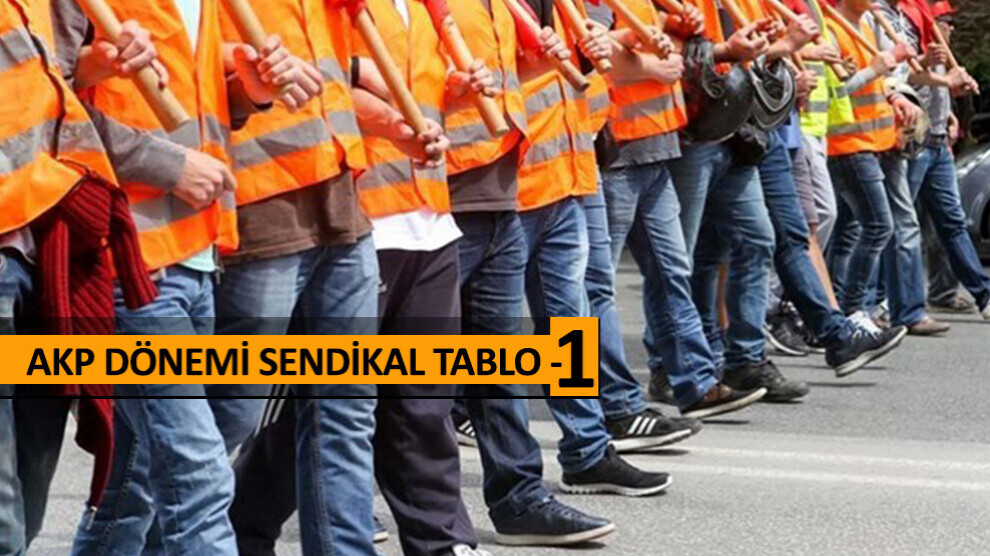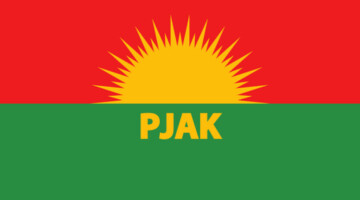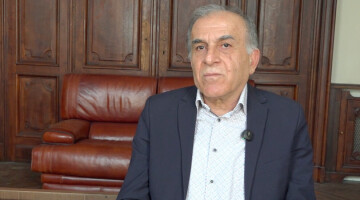During the 20-year AKP rule in Turkey, the rate of unionization decreased even when compared to the time of the military junta, following the coup of 12 September 1980.
When the AKP came to power, the unionization rate was 57.98 percent, but it has decreased to 12.76 percent. This, despite the number of workers increasing 3 times.
The Turkish Minister of Labor and Social Security, Vedat Bilgin, mentioned the rate of unionization in his statements about the establishment of the minimum wage in the last period. Bilgin admitted that unionization was low, saying that “the rate of unionization in the public sector is very high. There is a serious problem in the private sector. There are 15 million laborers. Nearly 1.5 million of them are organized. We have to change this. Turkey's employers should not take a stand against the unions.”
So, why did unionization drop so much during the AKP period? What does this pro-unionism created by the government today mean?
In the first part of this dossier, we will look at the number of organized workers and union profiles in Turkey during the AKP period. Afterwards, we will draw attention to the current problems in unionization by interviewing lawyers and union experts.
AKP in the trade unions
According to the January 2022 data of the Ministry of Labor and Social Security, only 2,189645 workers out of 15,294362 in Turkey belong to a union. According to the data published in the Official Gazette, Türk-İş is the confederation with the highest number of members, with 1,213439. Hak-İş is the second largest confederation with 727,187 members, followed by DİSK with 212,593 members. 29,855 of the workers are members of independent unions.
The highest unionization rate is in the general services (municipalities) sector, and the lowest in the construction sector. Currently, the union with the highest number of members in Turkey is Hizmet-İş, affiliated with Hak-İş with 243,643 members. It is basically impossible to hear Hizmet-İş mentioned in strikes or in discussions about worker’s health, working conditions, minimum wage. This union is organized especially in AKP-run municipalities.
In terms of members, Servis-İş is second, followed by Türk Metal, Öz-Sağlık-İş, Genel İş and Belediye-İş.
When we look at the profile of both workers' and civil servants' unions in Turkey, we see mostly unions (such as Service-İş) organized in AKP municipalities that are on the side of the AKP (Türk-İş and Hak-İş). Of course, laws and governments are not the only obstacles to unionization in Turkey and in the world. 'Yellow unionism' is, however, one of the most serious problems today.
194,000 strikes banned during the AKP government
With the Trade Unions and Collective Bargaining Agreement Law No. 6356, the AKP put into practice workplace-business such as membership of more than one union on paper, and thresholds such as 50+1 and 40+1 for the recognition of a union.
But the same law can also issue a 60-day postponement decision for strikes. But strikes cannot be started after this period. If the parties cannot reach an agreement within the postponement period, the dispute is resolved by the Supreme Arbitration Board (YHK). Therefore, the postponement of the strike means a de facto ban on the strike.
According to the data from DİSK-AR, 17 strike postponement decrees have been issued since the AKP came to power in 2003 and strikes involving 194,39 workers were postponed (or rather banned). 7 of the strikes banned during the AKP period were called during the state of emergency, following the 2016 attempted coup.
While the AKP was using the strike delay weapon, especially during the state of emergency, all of the workers' protests that started in January-February took place in non-unionized workplaces. While the unions could not be involved in the actions from Istanbul to Antep, the rate of organization did not increase after that period. The unionization rate of workers in Turkey is around 14 percent according to the ministry's rates, but only 7 percent of them have the authority and right to collective bargaining.













